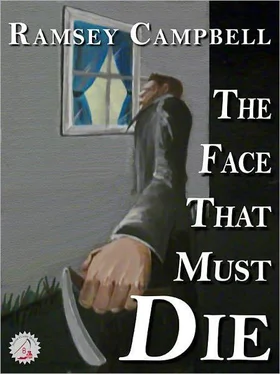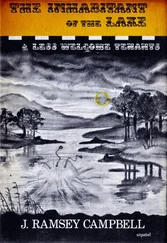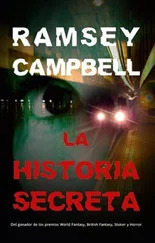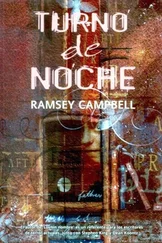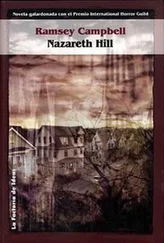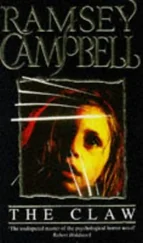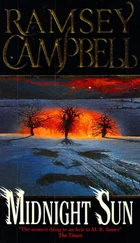Ramsey Campbell - The Face That Must Die
Здесь есть возможность читать онлайн «Ramsey Campbell - The Face That Must Die» весь текст электронной книги совершенно бесплатно (целиком полную версию без сокращений). В некоторых случаях можно слушать аудио, скачать через торрент в формате fb2 и присутствует краткое содержание. Жанр: Триллер, на английском языке. Описание произведения, (предисловие) а так же отзывы посетителей доступны на портале библиотеки ЛибКат.
- Название:The Face That Must Die
- Автор:
- Жанр:
- Год:неизвестен
- ISBN:нет данных
- Рейтинг книги:4 / 5. Голосов: 1
-
Избранное:Добавить в избранное
- Отзывы:
-
Ваша оценка:
- 80
- 1
- 2
- 3
- 4
- 5
The Face That Must Die: краткое содержание, описание и аннотация
Предлагаем к чтению аннотацию, описание, краткое содержание или предисловие (зависит от того, что написал сам автор книги «The Face That Must Die»). Если вы не нашли необходимую информацию о книге — напишите в комментариях, мы постараемся отыскать её.
The Face That Must Die — читать онлайн бесплатно полную книгу (весь текст) целиком
Ниже представлен текст книги, разбитый по страницам. Система сохранения места последней прочитанной страницы, позволяет с удобством читать онлайн бесплатно книгу «The Face That Must Die», без необходимости каждый раз заново искать на чём Вы остановились. Поставьте закладку, и сможете в любой момент перейти на страницу, на которой закончили чтение.
Интервал:
Закладка:
Bedraggled leaves crawled along the pavement. The shadow of the house crept towards him like a stain. A glass dagger gleamed before him on the roadway, amid fragments of a bottle. How long had he been waiting? Since he’d sat down the shadow had crossed the road.
Perhaps the policeman hadn’t believed him. Or perhaps he had, yet intended to do nothing. Horridge didn’t even know his name; he had been just an anonymous official voice. What secret might the owner of that voice have had? Horridge’s thoughts dragged his head down to stare at his shabby toecaps. He should have known better than to trust the police, after what they’d done to him.
He had still been at school; his father hadn’t long been allowing him to help on the ladder at weekends and on summer evenings. The knocking at the front door had shaken the house. He’d heard his mother’s sick enfeebled voice crying out upstairs, from where she was trapped in her bed: “What’s wrong? What is it? What’s the matter?”
Two policemen had wanted to know everything he knew about the cat burglaries. His father had tried to argue with them while his mother had cried out in the emptiness, unanswered. At last his father had given up, exhausted. “Go with them, John. Let them take your fingerprints. They’ll soon see their mistake.” But as he hurried upstairs to calm his wife, hadn’t he glanced uncertainly at his son?
They’d questioned Horridge at the police station for two hours. They had seemed unable to believe that he hadn’t heard about the burglaries, all of which had been of first-floor bedrooms. Because he minded his own business, they’d suspected him of lying. Eventually they had taken his fingerprints; then grudgingly they’d let him go. One of them had pointed at their copy of his prints. “Just remember – behave yourself.” He had never found out who had given his name to the police; he had suspected everyone.
He jerked free of the trance of his memory. A car was slowing outside Craig’s house. It halted there. It wasn’t marked like a police car – but when the two men strode towards the house, purposeful but unhurried, Horridge knew at once what they were. He had been right to phone. Some people could be trusted, after all.
He narrowed his eyes unobtrusively, so as to appear to be sleeping, and watched them ring the bell. Suppose Craig were not at home? Suppose one of the other tenants saw the police and warned Craig to stay away? Then Horridge would have helped him to escape justice! He squeezed his eyes viciously shut, to punish himself.
He heard the clatter of a window, and opened them in time to see Craig leaning out like a gargoyle. The swollen face seemed to venture into the daylight reluctantly as a maggot’s. “Who is it?” Craig called. His voice was deep enough to pass for a man’s, but Horridge heard something wrong with his intonation.
The policemen had to step out from beneath the porch before he could see them. “Mr Roy Craig?” one said, and displayed something in a small folder.
Craig hesitated, peering. “Just a moment,” he said, and closed the window.
As the policemen waited, Horridge saw them exchange a meaningful nod. He hugged himself, not to keep out the cold but to make sure that none of his glee drained away. Mightn’t there be a back way out of the house? At this moment Craig might be making his escape! For the love of heaven, why didn’t one of them go round the back? He squirmed on the bench, restraining his urge to do their job for them.
The door in the porch faltered open. When he saw Craig being escorted into the darkness within, Horridge closed his eyes gently and grew calm. Only once before had he felt so secure – in his grandparents’ cottage in Wales.
Some time later he heard the front door open. He let his eyes widen. No need to pretend to be asleep. He was greedy for the sight of Craig’s arrest.
The policemen were emerging from the porch, but Craig stood in the inner doorway. Was he resisting arrest? Then why was he smiling? Was he so brazen that he could still smile? Not until Horridge realised that the policemen were apologising did the truth seize him like paralysis.
It was as though the arrest had been turned on him – for one policeman was striding straight towards him. Horridge’s legs shook; if he stood up, they would give way. If he fled, his limp would deliver him to them. He closed his eyes, pretending sleep, but his eyelids twitched violently. The policeman halted just beyond the pavement and gazed at him. Horridge couldn’t catch his breath; the gaze was interminable, agonising. Then the policeman kicked the fragments of the broken bottle into the gutter and returned to the car.
When the car had moved away, Horridge sat trembling on the bench, like an alcoholic tramp bereft of his drug. His mind felt empty and aching as a belly purged by sickness. Suddenly he realised that Craig could see him. The creature must be supremely confident now. Suppose he pursued Horridge home? Horridge jerked himself to his feet and fled towards Lodge Lane.
A bus was halted at the stop. While he limped towards the doors, the driver gazed at him as though he were a second-rate comedian. Horridge wouldn’t have put it past him to drive off at the last moment – but he only made the engine roar impatiently.
Horridge clambered aboard panting and thrust the fare at the driver. The man only stared, waiting until at last he saw the notice: EXACT FARES PAY HERE
This driver does not accept money
That was a joke: never accepted what was offered, more like, with all their strikes and union meetings. As Horridge fumbled for the right change the driver watched indifferently, smug and stolid behind his official notice. He’d have liked to wipe the smugness off the man’s face. At last he found the change and dropped it in the slot. Finally satisfied, the bus leapt away – but before he reached his seat Horridge had to stumble back, having forgotten to claim his ticket from the machine. He could never remember how to behave with this new system. They couldn’t leave anything alone.
Around him passengers babbled. Nobody took any notice of him. Couldn’t they see what he had been through? He felt as though he was in a madhouse. Was the whole world mad? Nobody seemed to care that a killer, perhaps a madman, was loose.
But of course the killer was a homosexual, which made everything all right. You mustn’t do anything to upset homosexuals. Homosexuality was the most natural thing in the world: at least, that was what the government and the media – and now, apparently, the police – would like everyone to think. Horridge wouldn’t have believed that the police, the so-called guardians of the law, could be so corrupted if he hadn’t seen it for himself. They’d been quick enough to take him away on suspicion of burglary, but they mustn’t touch Craig, oh no – not when he was a homosexual. After all, he’d only killed two people. Perhaps they were homosexuals themselves. What sort of identification might have been hidden in the folder which one of them had shown Craig?
When the bus reached West Derby Road he jabbed the bell-push viciously: pity it wasn’t an eye. As the door faltered open, he glared at the driver. The man thought himself so secure, perched in his official box. He needed to be put in his place. But suppose Craig were trying to catch up with Horridge, to find out where he lived? He stepped hastily down.
He waited beneath what remained of a bus shelter. People hemmed him in with incessant vapid chatter. How could they prate such nonsense – unless they had something to hide? It must be meant to disguise their thoughts. Everyone was conspiring, or deluded by conspiracy. Only the other day he’d heard the latest filth that they were trying to make people swallow: that everyone was homosexual, whether consciously or not. He wasn’t to be brainwashed into thinking that of himself. On the other hand, he was sure there were more homosexuals than would admit to it. Today’s little spectacle proved that Craig had friends in high places.
Читать дальшеИнтервал:
Закладка:
Похожие книги на «The Face That Must Die»
Представляем Вашему вниманию похожие книги на «The Face That Must Die» списком для выбора. Мы отобрали схожую по названию и смыслу литературу в надежде предоставить читателям больше вариантов отыскать новые, интересные, ещё непрочитанные произведения.
Обсуждение, отзывы о книге «The Face That Must Die» и просто собственные мнения читателей. Оставьте ваши комментарии, напишите, что Вы думаете о произведении, его смысле или главных героях. Укажите что конкретно понравилось, а что нет, и почему Вы так считаете.
